From the Biographies of the Distinguished Martyrs: (24) Teacher of the Knights: Abu Ja'far al-Maqdisi
Abu Ja’far al-Maqdisi in Iraq, 2006
Our twenty-fourth “distinguished martyr” is Abu Ja'far al-Maqdisi, whom readers may recall from some time ago. His biography has already been translated on this page, but I have re-translated it since the previous version was clunky and awkward. Further, I want to preserve the cohesion of this series. The previous version has been delisted and the introduction has been reproduced here, albeit with revisions. The images have been reproduced here as well.
There are a number of striking details reported in Maqdisi’s biography. He was a Palestinian from Ayn al-Hilwa in Lebanon. Prior to Iraq, he had no history of jihadist membership or combat experience, but not for lack of trying–he had unsuccessfully attempted to fight in Afghanistan. At the time, Lebanon was experiencing its own jihadist insurgency, especially in the Palestinian refugee camps like Ayn al-Hilwa, yet Maqdisi seems not to have partaken.1 Further, Maqdisi was not an “early adopter” of Zarqawi’s group. He joined Jama’at al-Tawhid wal-Jihad (JTJ) after the First Battle of Fallujah, in which JTJ won enormous local and regional prestige and had already undergone significant “Iraqization” in its membership. Abu Ismail does not report how exactly Maqdisi made his way to Iraq, though it is safe to say he likely trafficked through Syria, which was the path into Iraq for foreign fighters.
In any case, shortly after joining, Maqdisi earned command of a special operations force and became a combat trainer, reflecting high battlefield competence. IS co-founder Abu Muhammad al-Lubnani appointed Maqdisi to this position. Among the top leaders, Lubnani was especially involved in military-related affairs, as he (alongside Abu Anas al-Shami) was central in “Iraqifying” JTJ by recruiting military veterans and local Iraqi Salafi Jihadists. After the Battle, Maqdisi moved to western Anbar, particularly Al Qaim, which was under firm AQI control where he again fought Coalition forces. Here, he planned the raid on Abu Ghraib prison, in which Lubnani and Shami would both be killed. Soon after, Abu Ja’far was promoted to Zarqawi’s inner circle and became a close companion and top advisor–all within two years of joining the group. This is the most noteworthy detail of Maqdisi’s biography. His jihadist career was a mere two years–enough for him to become a top leader in the IS movement, which still praises him nearly twenty years after his death. The rest of the biography is devoted to vivid battlefield exploits.
The Teacher of the Knights
Abu Ja'far al-Maqdisi
A pinnacle of morality and a banner in jihad, he was among the most beautiful in character, the most generous in voice, the bravest in heart, the strongest in resolve, the most discerning in intuition, the broadest in patience, the most giving in hand, and the most forbearing in nature.
A man of lofty ambition and noble spirit, guided in speech and beloved in righteous deeds. You would not admire anything in matters of religion or worldly affairs except that he was at its forefront–There is no power nor strength except with God–this is the beloved brother, Abu Ja'far al-Maqdisi.
The scholar needs no introduction, and the known needs no defining. Yet, it is among the wonders that the obscure speak of the renowned, that the valleys attempt to describe the mountain peaks–how could they, when they have only heard of loftiness but never ascended to it? The peaks never descend to the depths.
I never imagined, O beloved ones, that I would one day speak of this lion or attempt to describe him. But the beautiful veil of God’s mercy overflows upon me–Had sins carried a scent, noses would have been repelled–O Lord, Your covering and gracious pardon!
I always believed that I would never bid farewell to this man–rather, he would be the one to bid me farewell. The first day I saw this lion was in the Ayn al-Hilwa camp in southern Lebanon, where he came with a friend of ours. He hardly spoke, and I witnessed a silence I had long dreamed of embodying in my own character. When he did speak, the burdens of an entire nation poured forth, as if a volcano were about to erupt. At the time, he was seeking a path to Afghanistan, but God did not make it easy for him, so he returned to his place.
Days passed, and I traveled between countries. After the first Fallujah incident, while visiting the Martyrs' Neighborhood, a towering, handsome young man approached me, beaming with a smile that filled his face. He embraced and kissed me, then reminded me of himself–I recognized him immediately. Our beloved and astute brother, Abu Muhammad al-Lubnani (may God have mercy on him), approached and asked, "Do you two know each other?" We replied, "Yes, for a long time."
Mustafa Ramadan Darwish aka Abu Muhammad al-Lubnani
The hero was entrusted with highly specialized missions. He participated in an operation targeting the CIA on Airport Road (Baghdad Airport). Later, he was tasked with hunting down a foreign target to capture him alive. He continued striving in this until Abu Muhammad al-Lubnani appointed him as the commander of the Special Operations Unit.
This unit later carried out a dawn raid on a house in al-Mansur neighborhood, where the heroes captured one British and two Americans. Abu Ja'far later recounted the details of that raid–how they exploited a power outage when one of the enemies stepped out to start the generator. Abu Ja'far used the generator as cover, and as soon as the enemy of God reached it, he subdued and restrained him without alerting those inside.
The team moved with astonishing speed and elite training, each member knowing his entry point and assigned room to clear. In less than five minutes, they left with their captives, leaving despair in the hearts of their masters. The timing of the power outage was crucial–among other reasons, the enemies of God never left their heavily fortified house, which had additional iron gates. The operation had to be executed silently, as the area was swarming with special forces.
Days passed, and Abu Ja'far began forming the Rapid Intervention Force under the orders of the martyred leader, the beloved Abu Mus’ab al-Zarqawi (may God accept him and forgive him). This was before the Second Fallujah events. The force had several key objectives:
Sealing any gaps in the city’s defensive perimeter.
Reinforcing weak points during battles and losses.
Protecting the city from airborne landings behind enemy lines, positioning the force at the heart of the city.
He and his brother, the martyred commander Abu Khubayb al-Turki, worked day and night to establish this force under extreme conditions–constant bombardment targeted even the smallest gatherings. Training was conducted individually (one by one), then groups were assembled in pre-prepared houses within the city.
Abu Ja’far al-Maqdisi training fighters in Fallujah residential houses. Image Credit: Daniele Raineri
Coordination between these houses eventually formed a cohesive team despite the distances. As I mentioned, their purpose was to repel any potential airborne assault on the city. God granted this force immense success during the Second Fallujah battles, especially when the enemies of God seized Fallujah General Hospital.
I told Abu Ja'far, "I feel the al-Jughayfi district is vulnerable–send a group there." Indeed, the lions of monotheism rushed to the front. Midway, the enemy launched a fierce assault in a spearhead formation. Our men spread out, using houses as cover, then began breaching walls to move freely across the battlefield. They advanced in threes to engage.
At that time, Abu Ja'far was besieged in the Andalus Neighborhood alongside the lion of God, Abu Suhayb al-Lubnani, and the fearless warrior Abu Hafs al-Maqdisiwho was nearly disabled due to a leg injury. Abu Ja'far and his companions fought one of the fiercest battles there. Abu Suhayb almost single-handedly captured an American tank crew, but circumstances prevented it.
Abu Hafs al-Maqdisi in the AQI film ‘Martyrs of the Levant in Iraq’
A miraculous event unfolded when the trio (Abu Ja'far, Abu Suhayb, and Abu Hafs) engaged an armored vehicle from a house, destroying it completely and killing its occupants. Abu Suhayb then struck another armored vehicle nearby with his RPG. Suddenly, tanks surrounded the brothers from all directions, and one aimed its cannon at their house–they prepared for martyrdom.
Then, a rooster on the rooftop raised one leg, stood on the other, and began crowing. Abu Ja'far swore, "By God, it did not stop until it was as if the Angel of Death was driving the Americans away!" They fled the area, carrying their dead and wounded–even the tank in front of our house retreated. We prostrated in gratitude to God.
Side battles continued, but the Andalus Neighborhood was nearly under American control–being the first district near the bridge and containing the main market, it was strategically vital. Meanwhile, on the opposite side in Nazzal Neighborhood, we lost our leader Abu Nassir al-Libi. I prayed, "O God, grant me patience in this loss and replace it with something better."
Abu Ja'far and his brothers wanted to cross to us, but Abu Hafs al-Maqdisi refused, saying, "We must cross the main road, which is mined and swarming with tanks." The crossing point was less than a hundred meters from a tank.
As they pondered in silence, Abu Ja'far suddenly asked Abu Hafs, "Do you hear that?"
"Yes, but tell me–what do you hear?"
"I hear the neighing of horses."
Abu Hafs replied, "By God, I hear their hooves striking the ground!"
They crossed the road–not a single shot was fired at them. Glory to the One who blinded the enemies’ eyes and concealed them with His veil after letting them hear His honor.
Suddenly, I saw Commander Abu Hafs and Commander Abu Suhayb before me. I prostrated in thanks and said, "Glory to God–we lost one and were granted two." Immediately, Abu Ja'far was assigned command of the Eastern Front, Abu Suhayb the Western Front, and Abu Ahmad al-Ansari the Vanguard.
After prolonged battles and relentless bombardment, the enemy breached the frontlines under night vision. The AC-130 Spectre gunship rained fire on anyone resisting–they saw us, but we could not see them. Recon drones filled the sky, even hovering before each tank–we called them "The Eagle" for their resemblance.
The enemy stormed the front, and by the next morning, we were locked in brutal street warfare. At one point, Abu Ja'far grabbed an RPG and advanced into an alley. As he aimed, an enemy tank shell (32mm caliber) struck him, shattering his arm.
He returned to us smiling, "Sadly, I couldn’t fire the shot." By God, he did not utter a groan. When we removed (tore) his clothes, the wound horrified me–I could fit my fist inside the cavity! I turned away, letting others treat him.
Night fell, and an eerie silence gripped the fighters’ positions. Movement ceased except for rare instances. The brothers set up guard rotations–Abu Ja'far’s name was deliberately omitted. He protested, "By God, I complain of nothing! I can carry a weapon with one hand–watch, I can even aim!"
Abu Ja'far was muscular and blessed with robust health, matching his courage and character. I marveled–God knows–at his determination, strength, and endurance of pain as he did sorrow. That night, I was on guard with him. By God, he refused to let me step outside to scout, shielding me himself despite his grave injury.
We had no medicine, but in some houses, we found remnants of honey. One brother (Dr. Abu al-Ghadiyah) cleaned his wound and applied a tiny amount. The treatment lasted two weeks–then, to everyone’s shock, Abu Ja'far fully recovered! By God, I saw his arm flesh regenerating daily, as if someone were placing meat into the gaping wound–which normally required months to heal. Yet it sealed in days–Glory to God!
The battle raged on, and sorrows weighed upon us–but Abu Ja'far knew no grief. He was ever-smiling, lifting worries just by his presence. The fighting intensified, and the brothers dispersed into combat cells. Abu Ja'far joined one group but was surrounded from all sides.
The brothers scattered among houses. Abu Ja'far tried to reach some of them, miraculously escaping a bombed house–emerging as if from a grave. He found a narrow alley between two homes and dashed through. Midway, an American soldier aimed his rifle from a rooftop–"STOP! STOP!"
The lion halted, looked up, and saw the enemy’s muzzle. In a flash, he dropped onto his back and unleashed a barrage, knocking the enemy down. He then sprinted inside a house, unsure if the enemy was dead. Inside, he found brothers, including Muhammad Jasim al-Issawi.
The house was soon surrounded. Loudspeakers blared: "Surrender! You’re trapped with no escape–come out!" The brothers refused. Seconds later, a hail of tank shells and heavy artillery rained down, leaving no one–in their estimation–alive.
The cross-worshippers stormed in, entering a room where the heroes awaited, showering them with gunfire. The enemy fled, leaving three dead and dragging their wounded. Artillery then pounded the house relentlessly. When they were certain no one possibly could have survived, they cautiously re-entered–only to be met with another volley from all rooms and the upper floor (what remained of it).
The crusaders again scrambled away, abandoning yet more dead and wounded. Another bombardment followed. This time, they took precautions, approaching from above–the roof–and began hurling grenades into the house, one after another. One landed near Muhammad Jasim, instantly blinding him. Another blew off the martyr Sami al-Sharji’s legs.
Abu Ja'far saw this and charged the enemy with his rifle–but it suddenly jammed. Unlike most mujahidin who carried Russian Kalashnikovs, he carried an American M16. Hearing the malfunction, Muhammad Jasim felt for his own weapon and shouted, "Take my gun–don’t let them near us! I can’t see!"
The lion seized it and wrote an epic of valor, repelling the enemy from the house! He then propped up Sami’s legs on rubble. Blood gushed from both brothers, their tears even heavier. Unable to bear the sight, Abu Ja'far grabbed his rifle and charged the enemy outside.
As he lunged like a lion, enemy fire rained down–yet he dived with supernatural speed, as if an angel carried him across the road into another house! The enemies left him, content with shelling the building and destroying its facade–but leaving him unharmed.
The battle of that house lasted from nine in the morning until four in the afternoon. I was nearby, about fifty meters away, hearing the clash along with some brothers, though I did not fully understand what was happening until later, due to the chaos of the fighting, which moved from house to house, with each group engaged separately.
That night, Abu Ja'far beside another wounded brother. Both were immobilized by their injuries–Abu Ja'far had been wounded in over ten places: his leg, shoulder, and near vital areas like his heart... I treated his wounds myself–or rather, I merely wiped away the pus and dressed them daily with clean cloth. That was all the medical care we had.
The Martyr (we hold him as such) spoke: “In the dead of night, I rose to relieve myself. But as I bent to sit, I collapsed–darkness swallowed me whole. My companion, lost in his own agony, did not feel me fall. Two hours passed before I awoke. Soon, the blackness took me again. Then, rousing once more, I crawled to my brother’s side. There we lay, our wounds fierce and burning.”
I whispered to him: "We must leave this house–cross to the one opposite." And so, bearing each other’s weight, we stumbled into another home.
A thirst like fire seized us. We scoured the ruins for water–nothing. Resigned, we lay waiting for death, though never doubting the mercy of the Lord of Worlds. Then–suddenly–we awoke to find a waterskin before us! Unknown, out of place (for none here drank from such vessels), yet there it was. We rushed to it, drank deeply, and knew–this was from God. A gift from the heavens.
And then–just beyond–a watermelon! Fresh as if plucked that very hour, its rind gleaming, vibrant green. We crawled to it, split it open, and Abu Ja’far swore: "By God, never have I tasted anything sweeter, anything purer. No words can capture its honeyed grace." And again, we knew–this too was from Him. For it was not the season for melons. How could one be here, ripe and untouched, when families had fled a month and a half ago? We praised God, pressed our foreheads to the earth in gratitude, and rested in the care of the All-Giving.
Meanwhile, Brother Abu Rabi’–may God free him–gathered three young men, led by the martyr Abu Zubayr, and declared: "Come, let us search for our brothers. House by house, street by street. We will gather the wounded, reunite the scattered–perhaps God will grant us Abu al-Ghadiyah, Abu Ja’far, and so-and-so (meaning this humble servant)."
They began their quest. The first day passed in exhaustion and peril–no trace of the missing. At dawn, they resumed. As they entered the courtyard of a home (as was their way, offering swift greetings before calling out the names of the sought), their voices rang: "Abu Ja’far! Abu al-Ghadiyah!"–knowing the brothers would answer if heard.
And there–wrapped in divine care–they found Abu Ja’far, eating the blessed melon, drinking from God’s bounty. That same day, they found me and the others–we had all gathered in one place, we survivors of Hayy Nazzal. The brothers were divided anew into groups, and Abu Ja’far was placed with me in a hidden refuge (known only to God).
There, he began another journey: memorizing the Qur’an. I marveled at his speed–half a juz’ in a single day–and in such short time! Daily, he would recite to me, sometimes adding a quarter or even two.
I will not prolong the story, for the days of Fallujah–both sweet and bitter–have passed. Abu Ja’far settled in the western region, which was controlled by the mujahidin of Al Qaida, who had liberated it city by city. Among these cities was Al Qaim, “the Crossing Station,” as the Americans liked to call it. The enemy launched an attack on it, which they named 'Operation Bull Horn,' intending to breach with this 'horn' a barrier of steadfast faith. But God thwarted their plot and turned it back against them. At that time, Abu Ja’far was the military leader of the brothers, so he ordered them to exit through pre-prepared routes, while he remained with a small group fighting to the death–so that the enemies of God would not take the city as an easy prize.
The days of war passed, and with each day, the enemy suffered greater losses and defeat, while the brothers grew stronger in their path to heaven. During a moment of extreme hardship, the soldiers of faith gathered and consulted Abu Ja’far about leaving the city. His response was, “By God, in just a few hours, the enemy will flee.” That day was Friday. Indeed, the enemy attempted to breach an important point, but their tank was blown up by two mines placed in the same spot, with only one of the explosives detonating and hitting its target. The brothers thought both had detonated.
When a second tank arrived to retrieve the scattered, defeated remains of its sister tank, one of the brothers playfully fiddled with the detonation device, joking with those beside him: “Should I press it? Maybe I have a miracle!” Everyone laughed, and he pressed the button, and the miracle happened–the second explosive accurately detonated in the heart of the tank! The brothers cheered, shouting “Allahu Akbar!” The enemy abandoned their wreckage and dead, and withdrew. The brothers assumed the enemy would attempt another entry point, so they spent the night in devotion, hopeful for God’s Grace.
In the morning, the brothers looked and saw the enemy retreating, leaving behind some of their equipment and remains, declaring to the world that “Operation Bull Horn” had “succeeded and achieved its objectives!”
The commander and his soldiers marveled at God’s grace, mercy, and grant of victory–how He brings it about through means unknown to men. And would you be even more astonished, my brother, if you knew that the number of those who fought alongside Abu Ja'far did not exceed fifteen men? They stayed only to die, seeking martyrdom and to spite the enemy. They desired one thing, but God willed for these hearts and souls another–He willed them honor and the joy of victory. By God, not one of them missed martyrdom thereafter–to God we belong, and to Him we return. And so, the caravan moved on.
One day, the commander Abu Ja'far received a message from his brother, the Imam Abu Mus’ab al-Zarqawi (may God accept him and forgive him), ordering him to rigorously train and prepare a number of brothers, selecting the best among them in character, faith, and physique for a special mission. He was to divide them into small groups, each consisting of five men with an appointed leader. He was also instructed on specific types of training, such as wall climbing, crossing water barriers, and other skills.
Abu Ja'far immersed himself in preparing the brothers tirelessly and in complete secrecy. These were the assault groups for Abu Ghraib prison–may God be pleased with Abu Ja'far and his brothers. Later, the commander was tasked with forming a special force responsible for kidnapping foreigners, particularly the occupying enemies of God.
Then, the Lion of the Two Rivers (Abu Mus’ab) chose to keep Abu Ja'far close as his companion in all matters–his messenger to the regions, his military advisor, and even his media spokesman. Thus began a grueling journey with the commander, one whose difficulty is known only to those familiar with how the Lion of the Two Rivers lived.
As days passed, I once met Abu Ja'far and saw clear exhaustion on him. I asked, “What’s wrong?” He replied: “By God, if the Shaykh tasked me with destroying an entire enemy army, I would not falter by God’s will. But the responsibility of protecting and accompanying him–that, by God, is the true burden. These are the loads under which mountains would crumble, my brother. The Shaykh is a man of the Ummah–if any harm were to befall him, what would I say to my Lord?”
And the caravan moved on, and Abu Ja'far marched at its front alongside his brother Abu Mus'ab. Each day brought them a mix of sorrows and joys–here came news of a brother’s martyrdom, and there, the destruction of an enemy tank. Such was the life of these two men: sleep was a stranger to them. Abu Mus'ab hardly ever slept, constantly reviewing the messages of the brothers and attending to their affairs. And when morning came, his instructions would reach the lions scattered across the land.
Left to right: Abu Ja’far al-Maqdisi, Shaykh Mansur al-Mashhadani, Abu Mus’ab al-Zarqawi. Image Credit: Daniele Raineri
The entire world saw that strong young man sitting beside the Shaykh (second from the right) in the Shaykh’s last recorded video. The Americans commented heavily when Abu Ja'far quickly reached to lock and load the Shaykh’s weapon–something he always did, as he helped the Shaykh with everything: his food, his drink, his clothes, and his rest.
The Shaykh–may God have mercy on him–intended to marry his daughter to him and even told one of the brothers as much. I myself had asked for her hand on behalf of Abu Ja'far, and the Shaykh said:
“By God, I know no fault in Abu Ja'far, and I’ve never seen anyone like him for my daughter–not in virtue nor resemblance. But give me a little time until I am certain she is ready for marriage. Then, if she agrees, she is his, God willing. And I believe she will be.”
And the caravan moved on–but this time, it moved toward a journey of happiness, purity, serenity, and splendor.
It moved on to the abode where there is no sorrow, no worries, and no pain.
It moved on–we believe–to the pleasure and acceptance of God.
It moved on to eternal bliss, everlasting honor, and true authority.
It moved on suddenly, without warning. And that particular journey–no one could believe they had gone.
The caravan moved on while still yearning deeply for rest from all the hardship.
But God knows–it moved on after laying down the foundations, announcing a structure, writing a legacy of honor, and painting a smile.
It moved on–after dividing people into two camps: a camp of faith without hypocrisy, and a camp of disbelief without faith.
It moved on–after lifting the veil and writing history in its own blood.
Written by:
Abu Ismail al-Muhajir
Cf. Bilal Y. Saab, Magnus Ranstorp, “Securing Lebanon from the Threat of Salafist Jihadism,” Studies in Conflict & Terrorism 30, no.10; and Nir Rosen, “Al Qaeda in Lebanon: The Iraq War spreads,” Boston Review, 1 January, 2008.

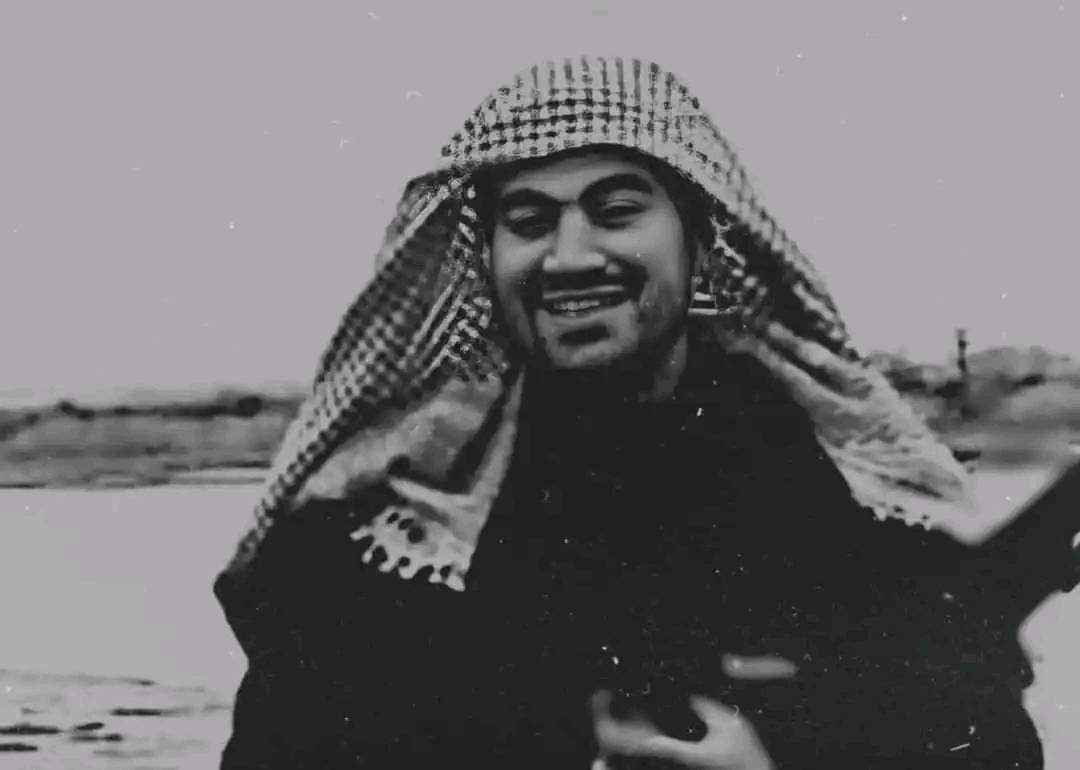
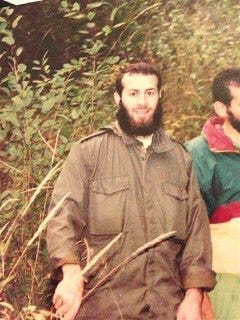
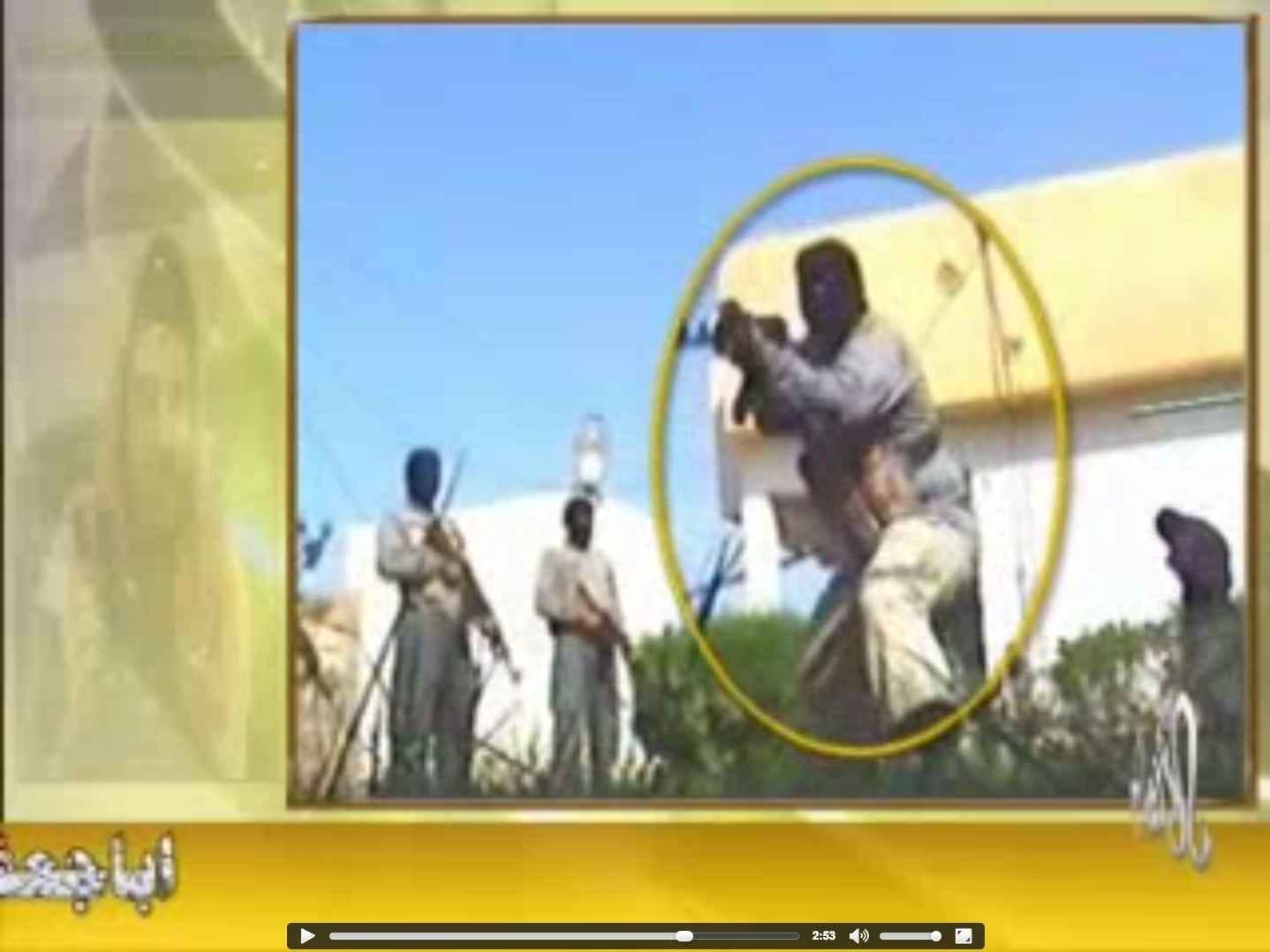
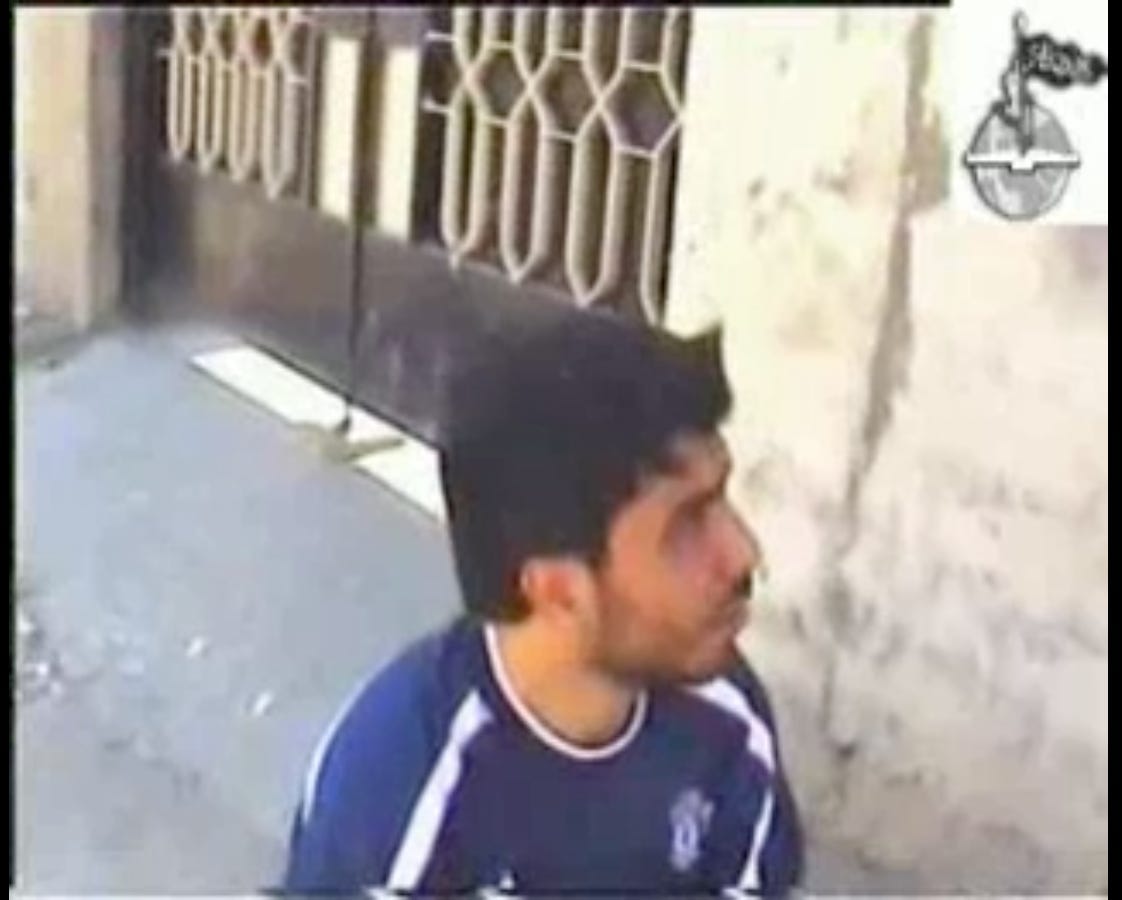
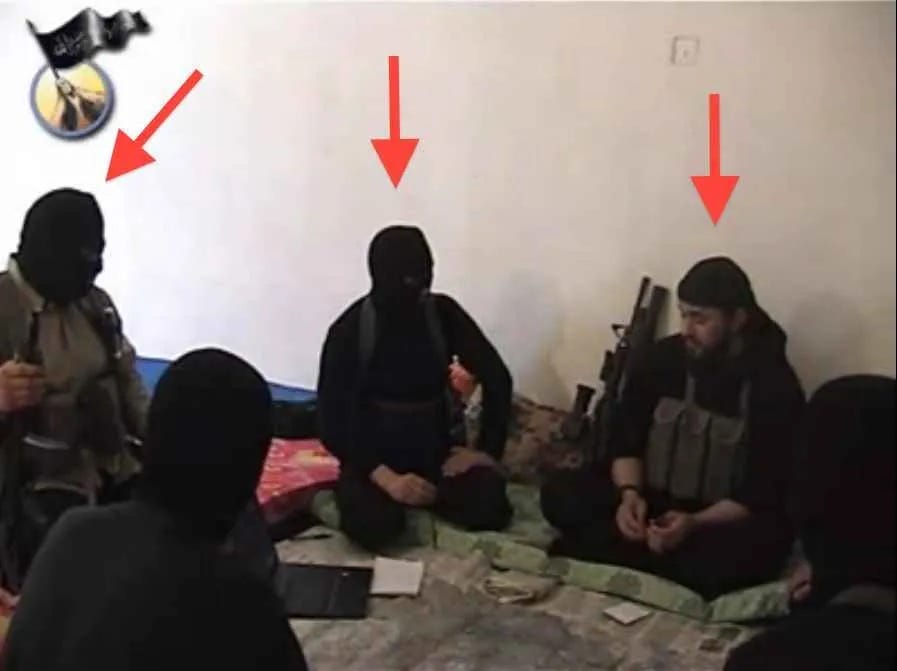
Interesting the mention of the Eugene Armstrong Jack Hensley and Ken bigley capture